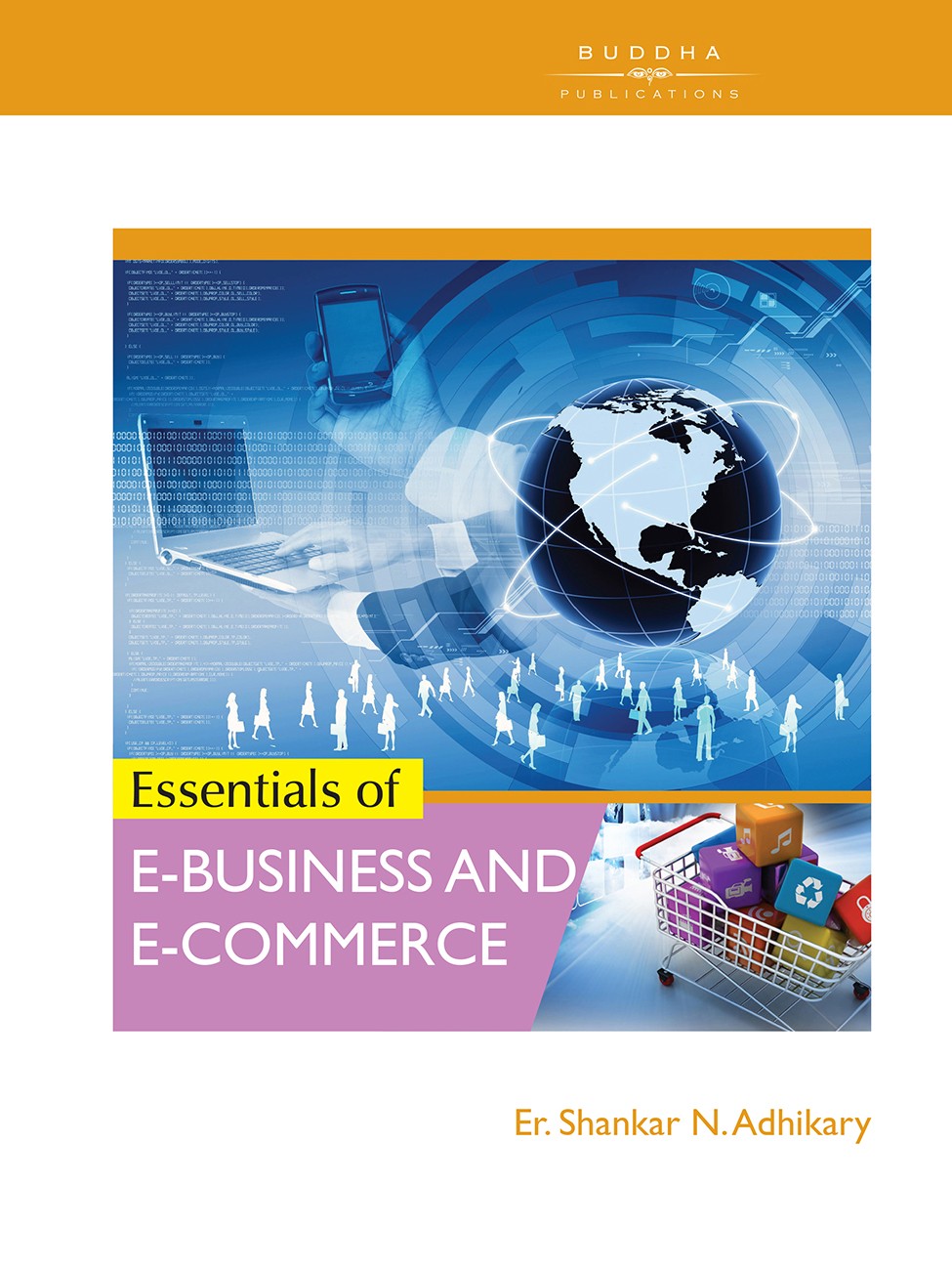
Essentials of E-BUSINESS AND E-COMMERCE
ER. Shankar N. Adhikary- ISBN: 9789937303231
- Version: English
- Price NRs. 565
- Published Year 2075
- Pages: 426
- Avaliablility: Out of stock
- University: Tribhuwan University , Pokhara University
For: Pokhara University (8th Semester) : BBA, BBA-BI, BBA-TT & BCIS & Tribhuvan University (6th Semester): BBA & BScCSIT.
There has been a severe recession in the world economy in recent years but some knowledge based industries like Facebook, Google, Microsoft, Alibaba Group and Amazon.com etc. has grown rapidly by setting new levels of performance every year. Now, the rapid advancement of technology and its application to business has been accompanied by a range of new terminology and innovations. The concepts of electronic commerce, e-business, e-marketing, e-CRM, e-tail and e-procurement has changed our traditional business process and economy into the digital form. Managers need to communicate the extent of changes they are proposing through introducing digital technologies to employees, customers and partners.
Organizations have now been applying technologies based on the Internet, World Wide Web and wireless communications to transform their businesses from traditional to digital form. For the author, e-business and e-commerce is an exciting area. Essentials of E-Business and E-Commerce will explore approaches which managers can use to assess the relevance of different e-commerce and e-business opportunities and then devise and implement strategies to achieve these opportunities. This book is intended to equip current and future managers with some of the knowledge and practical skills to help them navigate their organization towards e-commerce & e-business. This book has included all the titles of the syllabus prescribed by Pokhara University and Tribhuvan University. This book is divided into eleven chapters.
Chapter one is related to the Introduction part of e-business and e-commerce. It includes basic concept of e-business, development of e-business, ecommerce and its structural components, m-commerce and its applications etc.
Chapter two is related to E-Business and E-Commerce Models. It includesthe concepts business models, types of e-business and eservice models, role of business models and third parties for the business settlement etc.
Chapter three is related to E-Business Technology. It includesthe hardware and software technology, network technology, database management system and the e-payment technology etc.
Chapter four is related to E-Business and Network Security. It includese-business security management process, possible threats to the network and e-business, security measurement applied in the system etc.
Chapter five is related to E-Contracting and EDI. It includes the concept of e-contracting, process of e-contracting, EDI, components of EDI, applications of EDI in e-business settlement etc.
Chapter six is related to E-Payment System. It includes the concept ofe-payment, designing the e-payment system, types of e-payment system like ordinary e-payments and online e-payment system etc.
Chapter seven is related toDigital Marketing. It includes the concept of digital marketing, offline and online marketing, tools for digital marketing and the opportunities using digital marketing etc.
Chapter eight is related to E-Business and Operations Management. Itincludes the concept of operations management, e-logistic management, supply chain management etc.
Chapter nine is related to Online Distribution. Itincludes the basic concept of online distributions, types of distribution channels, component of distributions channels and electronic software distribution etc.
Chapter ten is related to E-Environment and Business Plan. Itincludes the concept of business environment, e-technology and electronic business environment, SLEPT analysis, development of business plan etc.
Chapter eleven is related to the Syllabus and Old Questions of e-business and ecommerce management. Itincludes the syllabus of PU, TU, Model Questions, Old questions and some sample questions etc.